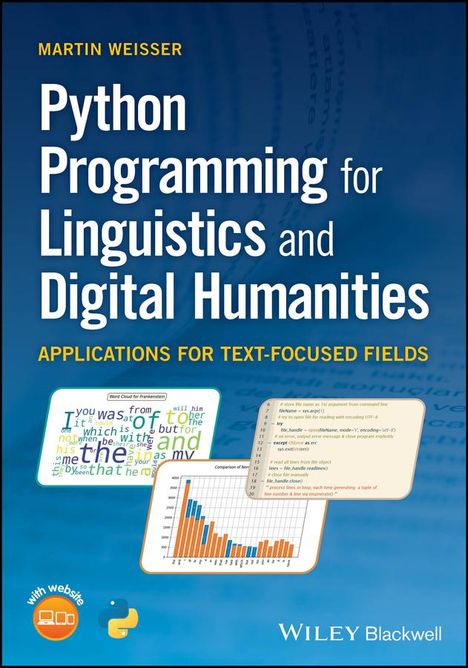Martin Weisser: Python Programming for Linguistics and Digital Humanities
Python Programming for Linguistics and Digital Humanities
Buch
- Applications for Text-Focused Fields
- John Wiley and Sons Ltd, 02/2024
- Einband: Kartoniert / Broschiert
- Sprache: Englisch
- ISBN-13: 9781119907947
- Artikelnummer: 11476192
- Umfang: 288 Seiten
- Gewicht: 666 g
- Maße: 252 x 175 mm
- Stärke: 18 mm
- Erscheinungstermin: 6.2.2024
Achtung: Artikel ist nicht in deutscher Sprache!
Klappentext
Learn how to use Python for linguistics and digital humanities research, perfect for students working with Python for the first timePython programming is no longer only for computer science students; it is now an essential skill in linguistics, the digital humanities (DH), and social science programs that involve text analytics. Python Programming for Linguistics and Digital Humanities provides a comprehensive introduction to this widely used programming language, offering guidance on using Python to perform various processing and analysis techniques on text. Assuming no prior knowledge of programming, this student-friendly guide covers essential topics and concepts such as installing Python, using the command line, working with strings, writing modular code, designing a simple graphical user interface (GUI), annotating language data in XML and TEI, creating basic visualizations, and more.
This invaluable text explains the basic tools students will need to perform their own research projects and tackle various data analysis problems. Throughout the book, hands-on exercises provide students with the opportunity to apply concepts to particular questions or projects in processing textual data and solving language-related issues. Each chapter concludes with a detailed discussion of the code applied, possible alternatives, and potential pitfalls or error messages.
* Teaches students how to use Python to tackle the types of problems they will encounter in linguistics and the digital humanities
* Features numerous practical examples of language analysis, gradually moving from simple concepts and programs to more complex projects
* Describes how to build a variety of data visualizations, such as frequency plots and word clouds
* Focuses on the text processing applications of Python, including creating word and frequency lists, recognizing linguistic patterns, and processing words for morphological analysis
* Includes access to a companion website with all Python programs produced in the chapter exercises and additional Python programming resources
Python Programming for Linguistics and Digital Humanities: Applications for Text-Focused Fields is a must-have resource for students pursuing text-based research in the humanities, the social sciences, and all subfields of linguistics, particularly computational linguistics and corpus linguistics.


